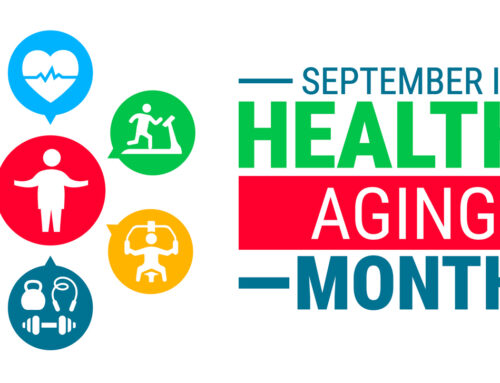While Americans 65 and older are the most active demographic group politically with 60% of eligible voters going to the polls, that still means that 40% are not voting. As we age, it is important to be aware of how public policy affects us and the ways that we can get involved.
“A lot of the benefits of our government go to older people,” says Julian Zelizer, a professor of history and public affairs at Princeton University and author of Governing America: The Revival of Political History. “If you look at the major domestic benefit programs, from Medicare to Social Security to Medicaid, the older people just have a greater interest in voting than younger people who don’t see the same benefits.” So while voting is certainly one of the most impactful ways to stay involved, there are also other actions that seniors can take to make sure their voice is heard.
Here are three ways to make sure that you extend your vote beyond the polls:
1. Join or support a group that advocates for the elderly:
While many of us are already familiar with the work that AARP does to advocate for the aging population, there are some lesser known organizations that are working to protect the rights of seniors as well. Listed below are just a few of the many amazing organizations that fight to protect the elderly:
The Justice in Aging Mission which uses the power of law to fight senior poverty by securing access to affordable health care, economic security, and the courts for older adults with limited resources.
American Geriatric Society (AGS) which is not-for-profit society of geriatrics healthcare professionals dedicated to improving the health, independence, and quality of life of older people.
National Council on Aging (NCOA) is a national leader on health care policy affecting older adults, with a focus on ensuring access for low-income seniors and investing in evidence-based programs.
Write or call your Congressional representative:
There is plenty of upcoming legislation that could help older Americans. Calling or writing to your Congress Person can be a powerful way to get their attention. There is always power in numbers. Some legislation that is of interest to the senior population includes:
Bipartisan Geriatrics Workforce Legislation
The House and Senate have both introduced legislative proposals for programs addressing the shortage of geriatrics healthcare professionals, as well as supports for older adults, caregivers, and the interdisciplinary teams responsible for delivering high-quality care.
Funding for the Geriatrics Workforce Enhancement Program in FY 2019
President Trump’s budget plan for FY 2019 makes deep cuts that will likely zero out funding for the Geriatrics Workforce Enhancement Program (GWEP) to train health professionals, direct care workers, and family caregivers to care for all of us as we age.
Support Funding for Aging Research in FY 2019
Ask Congress to increase funding for NIH and VA research essential to the health and well-being of our nation’s older adults.
Get social:
There is no shortage of tweets now coming from Washington so use this tool as a way to reach out on issues that matter to you as well. Facebook is another way to join groups or follow legislation that is important to you. For example, AGS is urging Congressional leaders to develop bipartisan proposals that protect elements of the Affordable Care Act and other programs that are important to older adults. Support their mission or other legislation that you care about by using social media as another tool at your disposal.
In summary, getting involved is crucial in order to protect the rights of older Americans. As seniors, we not only have more time but we have the experience and wisdom to advocate for what is important to us and we can’t assume that others will do it for us.
As author Louis L’Amour said, “To make democracy work, we must be a nation of participants, not simply observers…”
Click here to read more FirstLantic blogs >
 AVAILABLE 24 HOURS A DAY/7 DAYS A WEEK
AVAILABLE 24 HOURS A DAY/7 DAYS A WEEK Careers
Careers







